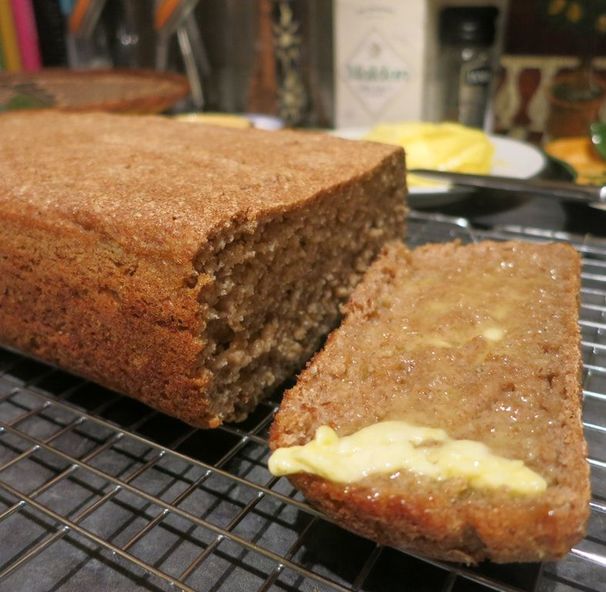 Contrary to what you may have heard in some circles, bread is not the devil's food, and nor are grains (though if you are allergic to gluten or don't tolerate glutinous grains, you have my understanding...feel welcome to check out my gluten-free recipes instead). Seldom is a single food outright bad - the problem with some so-called 'bad' foods often lies more in how we are preparing them. And, in the way we are now over-consuming these modern, non-nourishing versions (refined sugar anyone?) Many food production processes that have emerged over the last 50-odd years have left certain foods - particularly grains - highly processed, devoid of nutrients, harder to digest, and in questionable, genetically modified forms. This is especially true for bread. So, what if we returned to making bread the way our great grandmothers would have made it? This is a recipe for sourdough bread - bread that has been slowly fermented with airborne yeasts and lactic acid bacteria - made with sourdough starter, water, salt, and organic rye and wheat flours. That's it! It's bread the way our great grandmothers would have made it. Simple and nourishing.
Many people find slow-prepared sourdough breads easier on their gut than rapidly prepared commercial wheat breads. This is because the fermentation process of the dough pre-digests the gluten in the grain flour, making it easier for our bodies to digest. The fermentation process also enhances the available nutrients in the grain flour by neutralizing the phytic acid in the rye/wheat (the presence of which can 'bind up' minerals in grains that have *not* been soaked or fermented, leading to mineral deficiencies in humans). And, by using an organic flour, we can avoid the higher gluten content of modern wheat strains and highly toxic herbicides and pesticides like RoundUp, which are sprayed heavily on non-organic grain crops. In addition, rapidly prepared commercial wheat breads like those found in the supermarket typically contain health-depleting and harmful ingredients like soy flour, preservatives and synthetic vitamins like folic acid, which can cause adverse reactions for a significant number of people. Many commercial breads also contain milk, which not everyone can digest. If you love your bread but find many commercial breads leave you feeling bloated, gassy or just plain sick, try a home-made, organic sourdough bread and see how you feel. To get hold of a sourdough starter, you can make your own or buy one, or find a friend who already has one and is happy to part with some. Prep time 5 mins, baking time 30-40 mins Makes one small loaf - double the recipe if baking for several people Butter for coating the baking tin Ground sea salt 1 cup organic rye flour 1.3 cups organic whole wheat flour Sourdough starter (at least 3 tablespoons) 3/4 to 1 cup water -Put three generous tablespoons of sourdough starter in large ceramic or pyrex mixing bowl. (Remember to feed your master starter some wheat and rye flour and water and give it a good stir before putting it away again, ideally in a warm place.) -Add the flours to the bowl, using a little more wheat flour than rye flour. -Add a teaspoon of ground sea salt. -Gradually add the water while stirring the dough. You want the dough to have a sticky texture but not be too wet. -Scrape the dough into a butter-greased baking tin and place the tin inside a plastic supermarket bag with the open end of the bag tucked under the tin to keep flies and dust out, or place the tin under a damp tea towel. -Leave to rise and ferment for 12-24 hours. Popping it in a sunny spot or on the mantle piece above the fire helps the dough to rise. -Bake at 230-degrees Celsius for ten minutes, then turn down to 180-degrees Celsius for 15 minutes. You may need more baking time than this, depending on your oven. When the middle of the loaf sounds hollow on being tapped and a skewer comes out clean, remove to a wire rack to cool. Enjoy with lashings of butter! Your loaf will keep for about five days (if it lasts that long) in an air-tight container or paper bag in the cupboard.
0 Comments
Leave a Reply. |